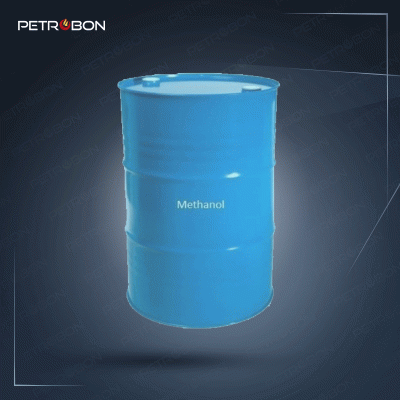methanol prices
You can contact the specialists of petrochemical raw materials sales department of Petroben company
to get and buy methanol varieties and price list.
In this article, we tried to introduce methanol and its properties. And we named the manufacturers. You
can look at the Petroben Trading Company's website to find out the purchase price of raw materials and
see the weekly price change of each product on a graph. We hope that you will find this article
interesting and useful.
Methanol manufacturers
The raw material of methanol is produced in Fanavaran, Shiraz and Zagros petrochemicals.
What is methanol?
The petrochemical industry is one of the most important and strategic industries in the country,
accounting for a large part of Iran's non-oil exports. Due to its rich hydrocarbon resources, Iran has a
very good competitive advantage in this sector, which can create high added value with appropriate
investment, the development of petrochemical projects and the completion of the value chain, and
reduce the country's dependence on crude oil sales. Petrochemical complexes are divided into five main
groups, which include basic chemical products, polymers, aromatics, fertilizers and toxins, fuels and
hydrocarbon materials. Methanol is one of the most important petrochemical basic products and is
mainly used as a raw material for the production of many sub-chemicals as well as fuel in some
countries. Methanol has also been widely used as feed for olefin production units since 2012. The
purpose of preparing this report is to examine the methanol production industry in the world and in
Iran.
Methanol is one of the most important types of alcohol and chemicals.
Introduction and application of methanol
Methanol or methyl alcohol is the simplest type of alcohol.
Methanol is also known as wood alcohol or wood ink. Methanol is produced by the anaerobic activity of
many bacterial species, as a result of which a small amount of methanol vapor enters the atmosphere,
and after a few days, with the help of sunlight, it is oxidized by oxygen and converted into water and
carbon dioxide. At room temperature, methanol is a neutral, colorless liquid with a slight odor.
Methanol is the first member of the series of monohydric aliphatic alcohols. Due to its similarities with
water and methane, this substance can be considered a hydroxymethane derivative or an alcoholic
derivative of water. It is highly reactive and can be used as an acid or base depending on the conditions.
Its ability to form hydrogen bonds allows it to form complexes with some organic and inorganic
compounds.
The use of methanol as a fuel additive currently accounts for about 35% to 40% of the demand. The use
of methanol as a fuel additive has been important in reducing air pollution and improving the
combustion performance of other fuels, and both will become important in the coming years.
Appcations of Use of Methanol:
Methanol is also used as antifreeze, solvent and fuel. Methanol is also used to formulate ethanol to
make ethanol produced for industrial use undrinkable.
Methanol is used sparingly as a fuel in internal combustion engines. Methanol produced from wood and
other organic compounds is called organic methanol or bioalcohol, which is a renewable fuel source and
can replace crude oil derivatives. However, 100% bioalcool cannot be used in diesel vehicles without
changing the engine.
This methanol is mainly used in the preparation of solvents, antifreeze and other chemical compounds.
The significant amount of methanol produced is used to make plastics, plywood, paints and
formaldehyde, which is also used to make explosives.
Methanol production:
Catalysts that can operate at low temperatures, such as copper, are used to effectively produce
methanol. Low-pressure methanol was made with Johnson Matthey technology in the late 1960s.
Natural gas is the most economical and widely used raw material for methanol production. But other
raw materials can also be used. Coal is used as a raw material for the production of methanol, especially
in China. In addition, existing mature technologies for biomass gasification for methanol October
production are underway. Methanol was previously produced by destructive distillation of wood. The
modern method of preparing methanol is based on the direct combination of carbon monoxide and
hydrogen in the presence of a catalyst.
1. Preparing the feed
2. Synthesis gas production
3. The density of the synthesized gas
4. Methanol synthesis
5. Methanol purification
6. Steam and condensate system
7. Storage and loading

